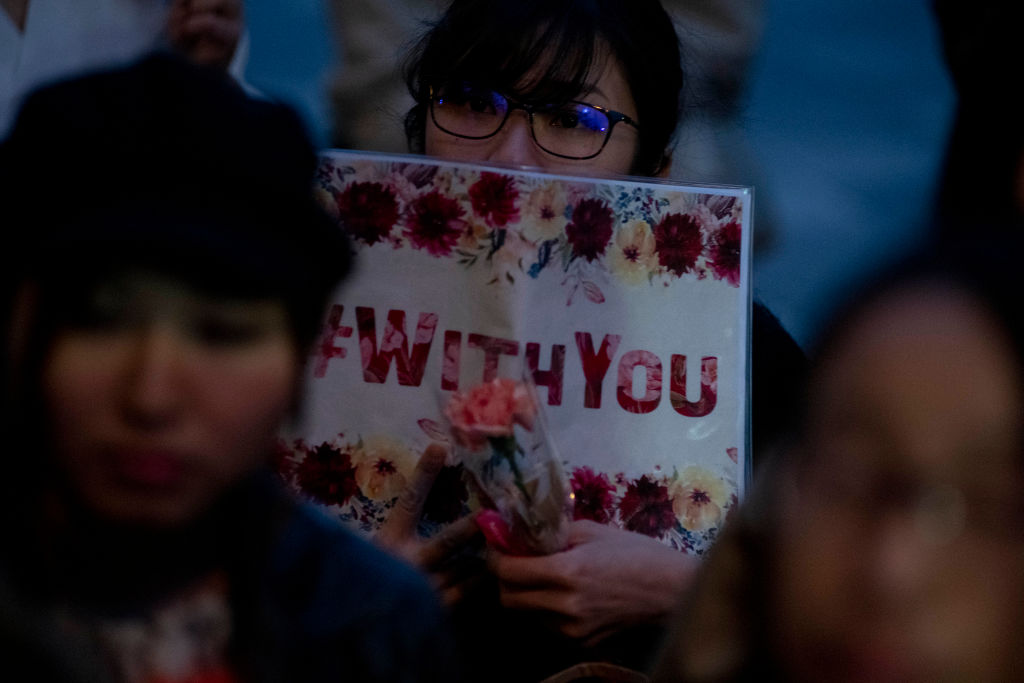On April 11, 2019, 500 women gathered in front of Tokyo Station, the Japanese capital’s main train station, frustrated and angry about acquittals in several high profile rape cases the month before. Woman after woman came to the microphone to share their experiences of sexual violence.
Similar protests sprang up in Osaka, Nagoya and elsewhere. The protestors held flowers and adopted the hashtag #WithYou to express solidarity with rape victims. By January 2020, what became known as the “Flower Demo” had spread to every prefecture in the nation.
One in 13 women in Japan reported in a 2017 government survey that they had been raped or sexually assaulted. More than half said they did not report the crime. One reason for the underreporting, human rights advocates say, is the unlikelihood of conviction.
Japan’s prosecutors labored under antiquated laws, some dating to 1907, that defined rape as forcible sexual assault, meaning that the perpetrator had to use physical force for non-consensual sex to be considered rape. The law also set 13 as the age for consent.
The protestors vowed to change the law.
“Raising our voice is not a waste. We can make a change,” the Flower Demo organizers wrote on their web page as the protests approached their first anniversary in 2020. “Let’s raise our voice for a world that is free of sexual violence. And let’s raise our voice with a goal toward reforming the criminal code from the victim’s perspective.”
They did.
Last week, a little more than four years after that first protest, Japan changed its rape law. The law now defines rape as “nonconsensual sexual intercourse,” removing the requirement for physical violence. It also raised the age of consent to 16.
The law received unanimous support in the Upper House of Parliament, an indication that societal norms regarding sexual assault had indeed changed.
The women of the Flower Demo have affirmed once again that women’s voices do have the power to catalyze positive change.



